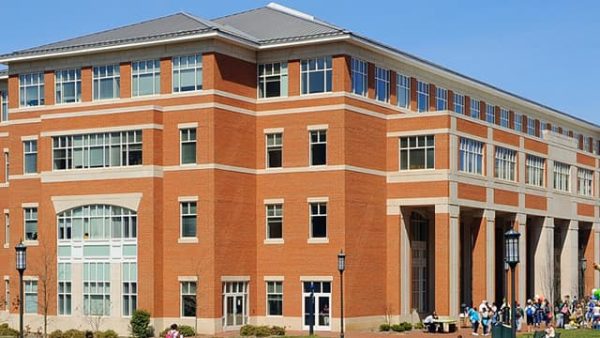Annual STEM Conference draws record crowd

It’s lunchtime on a Tuesday and 220 North Carolina science and math teachers are listening to a man talk about shoveling lemur poop.
Though this portion of National Geographic conservation scientist Luke Dollar’s keynote presentation may not have been the most appetizing of mealtime conversations, his larger message was lockstep with the Center for STEM Education’s mission to reshape how teachers teach and students learn those subjects.
The 11 annual K-12 STEM Conference brought educators from across the Carolinas to the College of Education for a daylong series of sessions.
Dollar’s speech, which outlined his work studying animals in Madagascar and highlighted the role teachers play in fostering passion for science and math, was one among an array of activities aimed at helping teachers develop in sometimes difficult to teach subjects.
“STEM education involves complex ideas and approaches in order to move students forward in obtaining the knowledge and skills necessary to further studies in these fields and to become STEM professionals. This conference is an important piece of an overall vision to equip teachers to be leaders in STEM education,” said David Pugalee, director of the Center for STEM Education.
In addition to hearing from the National Geographic conservationist and fellow keynote speaker Manley Midgett, one of the architects of the North Carolina Science Olympiad, participants chose from 40 smaller breakout sessions. These sessions were led by UNC Charlotte faculty, students and K-12 STEM teachers. Topics included:
- Learning the Language of Science: Vocabulary Strategies
- Applying Cognitive Science Principles to Science Vocabulary
- Personalizing Math and Science for Your Students
- Promoting STEM Literacy in K-12 Classrooms
- Cultivating Agriculture Through the Arts
CMS elementary science specialist Wayne Fisher is president of the North Carolina Science Leadership Association and a nine-year veteran of the conference. He said it’s an annually valuable resource for his teachers.
“I have talked to many of them who attended the conference, and they all say they are energized about what they learned regarding content and how best to teach that content. Equally important is the chance to network with other teachers who are also passionate about STEM and eager to learn more.”
Pugalee, the Center for STEM Education director, agreed. He emphasized the importance of bringing together perspectives from science, technology, engineering and mathematics.
“Effective STEM education is as much about the interconnectedness of the disciplines than approaches that separate and isolate the skills within content areas,” he said.
For more about UNC Charlotte’s Center for STEM Education and a full catalogue of events, browse CSTEM’s website.